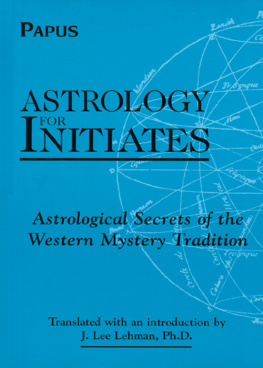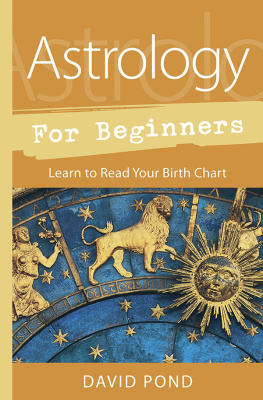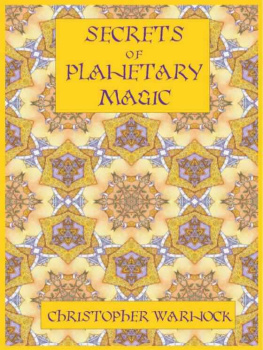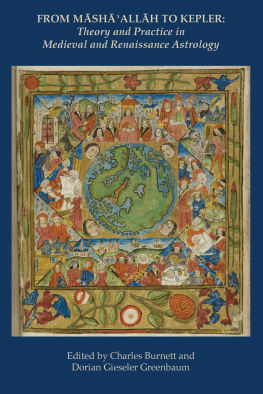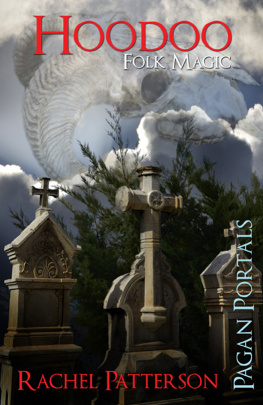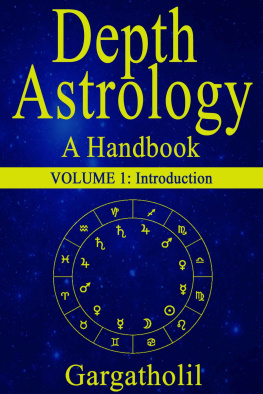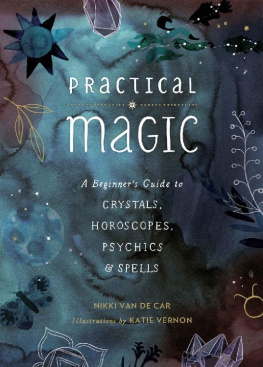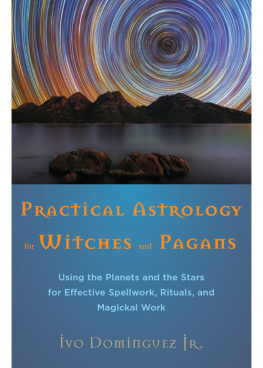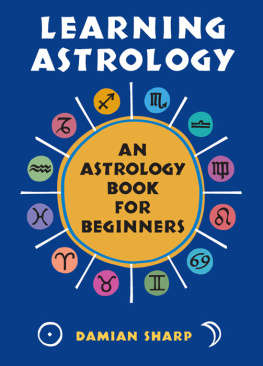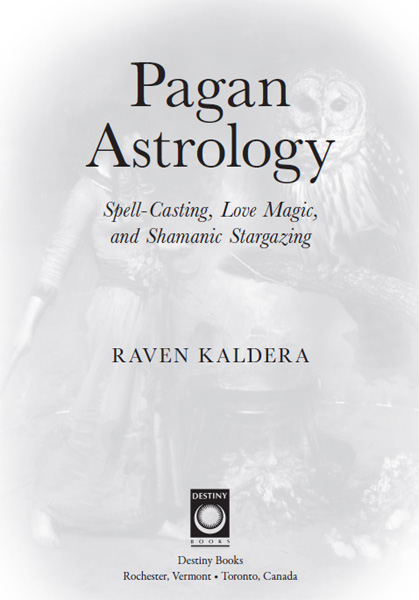
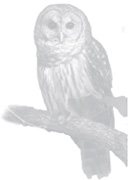
Pagan Astrology

Pagan Astrology combines a practical and easy-to-understand overview of the basics of Western Astrology with techniques and ideas to build astrological altars, work rituals, and perform magic using the unique forces and qualities of the astrological signs. Astrologers will particularly appreciate the magical prescriptions to counteract the energies of afflicted planets. This is a book that could grace the shelf of any student of the planetary mysteries.
ELLEN EVERT HOPMAN, AUTHOR OF A DRUIDS HERBAL OF SACRED TREE MEDICINE, A DRUIDS HERBAL FOR THE SACRED EARTH YEAR, AND BEING A PAGAN (WITH LAWRENCE BOND)
Contents



AUTHORS NOTE
REGARDING PLANET PLUTO
The International Astronomical Unions 2006 decision to reclassify Pluto from a planet to a dwarf planet presented a challenge for astronomers who clearly consider it a strong planetary force. The International Astronomical Unions planet classification system is far from watertight and most certainly does not represent any type of agreement among astronomers. Only 4 percent voted on their planet definition, and most are not planetary scientists. Their decision was immediately opposed by hundreds of other professional astronomers in a formal petition. There are various inconsistencies in their nomenclature; their definition states that dwarf planets are not simply a type of planet, but are not planets at all. This is entirely inconsistent with the use of the term dwarf in the rest of astronomy, where dwarf stars are still stars, and dwarf galaxies are still galaxies. Their definitions also define objects solely by where they are while ignoring what they are. If Earth were in Plutos orbit, according to the IAU definition, it would not be a planet either. A classification scheme that takes the same object and makes it a planet in one location and not a planet in another location is essentially useless.
Many astronomers favor a broader planet definition that includes any non-self-luminous spheroidal body orbiting a star. The spherical part is important because it means an object is large enough for its own gravity to pull it into a round shapea characteristic of planets and not of shapeless asteroids. Astrologers, in general, have rejected the IAU definition, because for us the important part isnt even the size of the rock, its the strength of the effect of the cosmic force marked and interpreted by that planet. The force that Pluto marks for us is awesome and powerful, and we find no reason not to refer to it as a planet, regardless of the transient squabbling of astronomers.
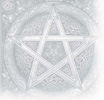
INTRODUCTION
Stars and Stones
A strology is the art and science of calculating cosmic currents by observing heavenly bodies. Thats the nutshell description... and to most outside observers, that smacks terribly of magic. Most astrologers, though, would disagree. Starting with Evangeline Adams (the first astrologer to try to scientifically prove the validity of astrology in a court of law in 1914), the astrological community has been attempting for a century or more to prove that astrology is completely scientific, with nothing spooky or supernatural about it.
Of all the divinatory methods, from tea leaf reading to Tarot, astrology is the one that attracts the most left-brained types. After all, its got more math than any other method, except maybe the I Ching. If one could grade divinatory methods the way one grades scienceswith physics on the hard science end and psychology on the soft science endastrology would unquestionably be the hardest (with maybe scrying as the softest). It lends itself better than any other method to statistics and lab testing, and the hope of most of its practitioners is to someday allow it to join the ranks of ordinary sciences, like long-lost-twin astronomy.
In order to do this, the practice of Western astrologers has been to pare off and throw away anything that reeked of the Mysteries. This included anything remotely religiousafter all, the existence of deities and spirits cant be proved scientificallyand anything associated with magical practice. Of course, this is nearly impossible in the end, because every divination method in existence sooner or later brushes up against the human need to explain the spiritual nature of the Universe... and that includes astrology. To the desperately bowdlerizing scientists in the astrological community, I can only point out a truth about that hardest of sciences, physics. The further into esoteric physics that physicists go, the spookier their theories become. Everything comes around in the end.
Some astrologers, seeking something a little more spiritual, gravitate toward the Vedic astrology practices of India. In studying traditional Indian astrology, they run smack up against the practice of astrological remedies, which is an ordinary and expected part of the Indian astrologers daily repertoire. The practice goes like this: The astrologer looks at your chart, checks it against the current planetary positions in the sky, and figures out if any of those moving planets are contacting yours in a way that messes with them and makes your life miserable (or, conversely, make things more fortunate). For the nonastrologers in the audience, we call these transits and speak of a transit of heavenly Planet X afflicting your natal Planet Y if its bad.
So far, so good; this is exactly what a Western astrologer is likely to do. The difference is that the Vedic astrologer then consults a chart of remedies, which are actions you can take to propitiate the injurious transiting planetary energy and lessen its effect on you. These can be as varied as wearing a particular gemstone or giving hay to a sacred cow. Sound like magic to you? It did to me, when I read about it, and I wasnt surprised to find that most Western astrologers dismiss the Vedic remedies as bunk. Frankly, I suspect that they work as well as any spell, and probably better than most, given the long history of their use. The one problem I have with them is that they are culturally specific; we dont have a lot of sacred cows wandering around, nor can we donate a cow to the local temple of Shiva, usually. Thats why Ive worked out a modern Western version of the astrological remedies that any of us can use without trouble. More on that later.
In the meantime, while India had a large number of lay astrologers giving out religious rather than magical advice, in medieval Europe astrology was used extensively on the magical side of things... but only for certain kinds of magic. Throughout the European medieval period, being an astrologer meant that you were a literate, educated individual with access to a great number of unusual books and other reading materials. This almost guaranteed that you were not a member of the lower classes, which were the huge unwashed bulk of European humanity at that time. If you were upper class and educated, and you had access to astrological materials, chances were that you also had access to magical textbooks such as grimoires. Greek and Roman and Arabic writing, Qabala, Christian demonology, and other trappings that became associated with the amalgam we now refer to as ceremonial magic. Such magicians used astrological charts and symbols to add power and kick to many of their spells, be it timing the magic by the planets or invoking their energies to a particular purpose.
Next page


